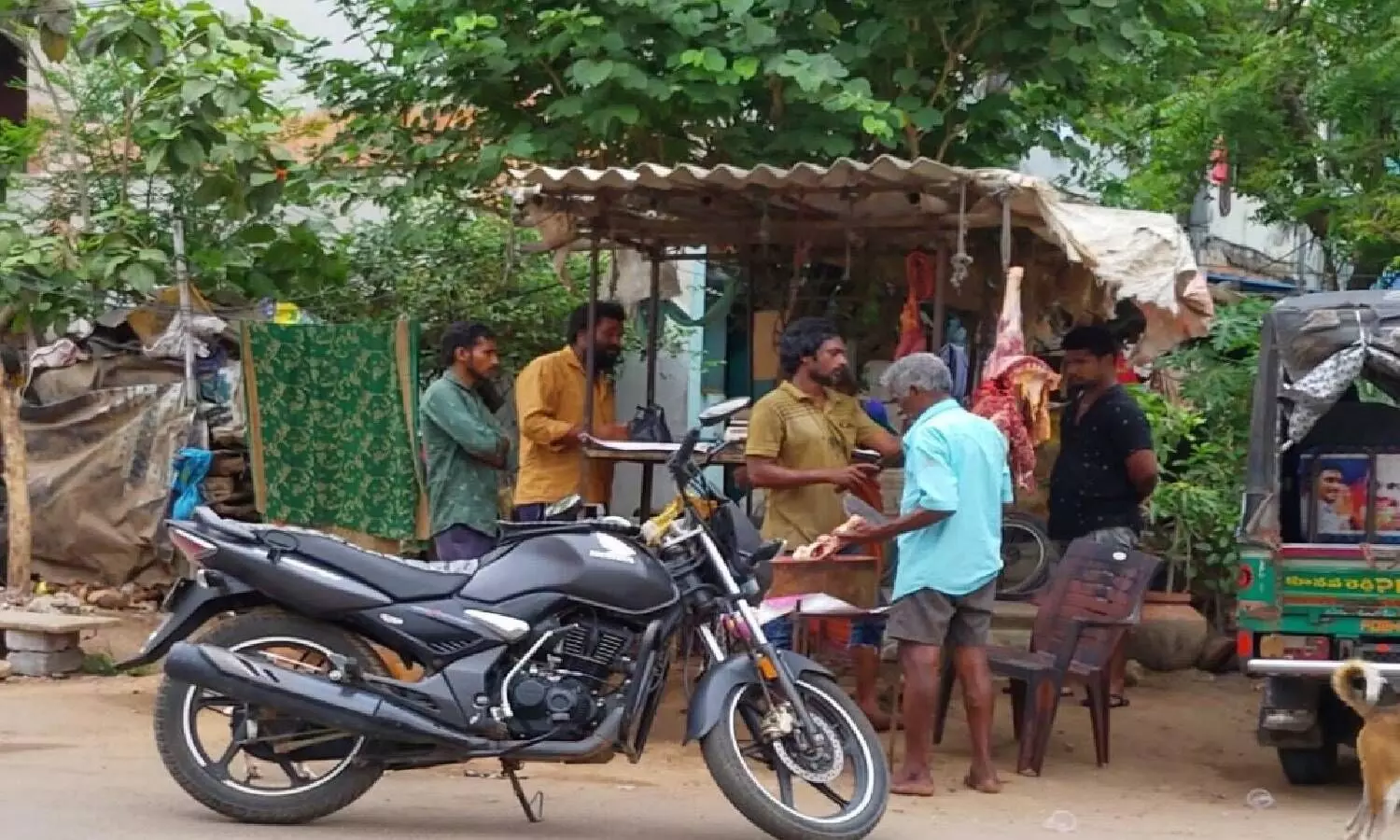100-200 donkeys slaughtered in Andhra Pradesh, meat sold: PETA
An investigation was conducted by PETA between May-August 2022 during which they visited Ongole, Tadepalle, Vijayawada, Chirala, and Bapatla and documented butchers slitting donkeys’ throats on roadsides, under flyovers, and behind a makeshift stall, and adults forcing children into helping with illegal slaughter, exposing them to blood, and desensitising them to violence.
By Amrutha Kosuru
Hyderabad: People for Ethical Treatment of Animals (PETA) India has found that nearly 100-200 donkeys are being slaughtered per week and their meat is being sold in several parts of Andhra Pradesh.
An investigation was conducted by PETA between May-August 2022 during which they visited Ongole, Tadepalle, Vijayawada, Chirala, and Bapatla and documented butchers slitting donkeys' throats on roadsides, under flyovers, and behind a makeshift stall, and adults forcing children into helping with illegal slaughter, exposing them to blood, and desensitising them to violence.
PETA India ceased nearly six slaughterhouses in Chirala alone.
What the law says on donkey slaughter
The slaughter of donkeys violates sections 3 and 11 of the Prevention of Cruelty to Animals (PCA) Act 1960, and sections 428 and 429 of the Indian Penal Code (IPC) 1860. Donkey slaughter is punishable with a jail term of up to five years, a fine, or both. Killing donkeys is also an offence under Section 11(1)(a) and (l) of the Prevention of Cruelty to Animals Act 1960.
PETA found that despite the law, merchants have been selling prohibited donkey meat in full public view. "We also found a police officer purchasing the meat instead of taking legal action recorded on video in Ongole district," PETA India manager of Vegan Projects Dr. Kiran Ahuja said.
Decline in donkey population
There has been a 61% decline in the donkey population in India in just a seven-year period.
As per the 19th Livestock Census Conducted in 2012, there were 3.2 lakh donkeys in India, however, as per the 20th Livestock Census conducted in 2019, only 1.2 lakh donkeys remain.
Myth driving demand
PETA India said that its discoveries recently led to a joint operation with the Bapatla police and Animal Rescue Organisation, Help for Animals Society, and East Godavari SPCA to seize over 400 kilograms of donkey meat. Donkey meat is sold in the state based on bogus, unscientific health and benefit claims made by butchers.
"Donkeys are smart, sensitive animals who do not want to die, yet they are being hacked apart on roadsides, sometimes even by children, to fuel the demand created by myths," said Dr. Ahuja. "The meat is only being consumed in this part of the state. Many people seem to believe that eating donkey meat is healthy and are consuming it," she said.
Unlicensed slaughterhouses
Eating donkey meat violates the Food Safety and Standards Authority of India (FSSAI) norms as donkey meat is not listed under FSSAI's "appropriate" meat category. No slaughterhouse in India has the legal certification to butcher donkeys, and thus the animals are killed in unlicensed slaughterhouses, a violation of the Prevention of Cruelty to Animals (Slaughter House) Rules 2001.
Furthermore, a report published by PETA on the same said donkeys are being slaughtered without stunning them, which means the donkeys are conscious and aware of what is happening to them when their throats are slit.
In Chirala, donkey meat is reportedly sold in broad daylight stalls at a busy traffic junction. In Tadepalle town near Vijayawada, donkey meat was sold in a shop located near the Tadepalli police station. In Ongole, children were seen assisting the butchers in slaughter and skinning.
PETA claimed that the donkeys are being illegally transported from multiple states—Telangana, Tamil Nadu, Maharashtra, and more. "The donkeys are being brought to these parts of Andhra Pradesh only to be slaughtered," Dr. Ahuja said, adding that the donkeys are being transported late in the night to evade the police and reach slaughter sites early in the morning.